Is the Black mecca '10 years behind the rest of the world' on mental health?
Published in Lifestyles
Editor’s Note: This story discusses suicide. If you or someone you know needs help, the national suicide and crisis lifeline in the United States is available by calling or texting 988 or 1-800-273-8255. There is also an online chat at 988lifeline.org.
____
ATLANTA -- Savannah Elahee is sitting at one of her happy places: a picnic table near The Meadow in Atlanta's Piedmont Park.
Behind her, the geese who stalk the shore of Lake Clara Meer are loudly making their displeasure known to an encroaching goldendoodle and its startled owner. The cacophony of angry waterfowl and teen boys trading hits from a joint doesn’t break Elahee’s concentration.
The 18-year-old Cascade resident is talking about her love for period films like “Pride and Prejudice,” writing poetry, traveling and skateboarding. She’s excited that summer — her favorite season — is less than a month away.
The conversation then shifts to how Elahee got involved in her current role on the support staff at Silence the Shame, a local nonprofit focused on combating the stigma of mental illness, spreading awareness and making referrals for marginalized communities.
She remains unbothered while talking about her darkest day.
“I got to a point where I couldn’t sleep, I couldn’t eat. I was diagnosed with clinical insomnia, I’m like, ‘OK, I just need a moment’s peace.’ So I tried to take my life and overdose.
“I was not expecting to be here.”
Elahee was 14 at the time.
“Nobody ever asked me why I was suicidal. Nobody ever asked what I was feeling,” she said.
The teen realized she was still alive for a reason. “I just feel like God gave me a second chance.”
Nationally, May is recognized as Mental Health Awareness Month. Georgia ranks near the bottom for access to mental health care, so Elahee knows that means sharing her story can save lives. A 2023 survey from KFF, an independent foundation on health care issues, found that among adults who report fair or poor mental health, 50% of white adults are more likely to say they received mental health services in the past three years, compared with 39% of Black adults.
Despite the poor track record, other survivors, advocates and health care workers said they’re seeing progress to help Black communities, but it’s been a slow climb.
A 2024 report from Mental Health America placed Georgia at 47th out of 50 for access to care. That’s up two spots from the year before.
According to a 2020 study commissioned by the Congressional Black Caucus, suicide is one of the leading causes of death for youth ages 10-19. From 1991 to 2017, the number of suicide attempts among Black high school-aged youth rose by 73%. Between 2018 and 2021, the suicide rate among Black youth ages 10-24 went up 36%.
Among adults, studies show Black Americans are less likely than white ones to seek mental health care. Experts say that’s because of racism, historical mistrust of the medical industry and stigma.
Some of those numbers were on the mind of Atlanta Mayor Andre Dickens when he announced in February he was launching a partnership with Silence the Shame. Part of Dickens’ Year of the Youth initiative, it’s an effort to show his administration’s commitment to health equity for Atlanta residents.
“Together, we will continue our work to ensure Atlanta is a city where mental health resources are accessible to everyone, furthering our mission to build healthy and thriving communities,” he said.
`10 years behind‘?
Silence the Shame executive director Jewel Gooding does not hold back when it comes to the Peach State’s rotten rep around health care for Black, Indigenous, people of color and LGBTQ+ communities.
“Georgia is 10 years behind the rest of the world when it comes to mental health,” she said.
Gooding is a counselor with more than two decades of mental health service experience. Prior to Silence the Shame, she was the executive director for Mental Health America of Georgia. She said the state is behind on providing funding, adequate staffing and policy change.
There is also a huge gap in providing data for who is seeking and getting care, which falls on both individual patients, and private and public insurers. There’s a gap in providing pertinent info which leads to gaps a in coverage.
“We’ve come a long way, don’t get me wrong,” she said. “We are nowhere near to the rest of the nation when it comes to prioritizing mental health.”
Local policy experts tend to agree more work is needed, but just how bad is it?
“I think it depends on what day you ask me as to where I would rate our progress,” said Sarah Phillips, associate director for public policy at the Carter Center’s mental health program.
For Mental Health Awareness month, the Carter Center launched a billboard campaign targeting women of color. The campaign runs through early July.
“I think that we are in a good place where we have a legislature who has demonstrated that they’re prioritizing mental health and access to care regardless of partisan identity,” she said. “I think that is a win.”
Phillips is referencing Georgia’s Mental Health Parity Act passed in 2022. It requires insurance companies to cover mental health and substance abuse at levels comparable to physical care.
Phillips works with the Georgia Parity Collaborative, part of a coalition of more than 40 state and national organizations that monitors rollout of parity provisions.
“It’s certainly not the silver bullet,” she said of the parity legislation, “but really it started this wave of momentum that we’re still seeing in our Georgia General Assembly.”
Boots on the ground
Like Phillips, Natasha Taylor keeps close tabs on policy change and informing the general public on why it matters for them. Taylor is the deputy director for Georgia Watch, which advocates to lawmakers at the local, state and national levels about the issues that are affecting communities they serve.
Taylor also works closely with community health workers. These men and women help underserved communities overcome barriers in access to health care.
They often work with volunteer organizations and nonprofits, making little to no money. The problem is, they’re funded by grants. When the money runs out, so do options for them to help those who need it most.
“Our community health workers aren’t worried about where their next check is going to come from. They’re worried about the 100 people that they have on their client list that they can no longer serve,” Taylor said.
It’s not just individuals bridging those gaps despite financial insecurity. Organizations feel the crunch as well.
At The Center for Black women’s Wellness, program manager April Reid sees it play out before her. CBWW was established in 1988 under the then-National Black women’s Health Imperative. They now offer services to women and men throughout metro Atlanta.
“There’s just not enough funds out there. And if there are, they’re not as publicized. So organizations like ours, we rely very heavily on foundation grant funding for programs like this,” she said.
CBWW helps women throughout their life cycle, Reid said. Anyone who comes into the center, regardless of medical issue, is screened for severity of depression.
For the Atlanta metro area and state to see improvement, shifts in Black thought around mental health. need to happen.
“Culturally, we haven’t made it really acceptable for people to just feel like they can receive services. There are just so many layers to get through,” Reid said.
‘Open up and talk’
Folks might know music executive Shanti Das for her work guiding the careers of Outkast and TLC, but she left the music biz in 2009 at age 38.
She never knew her father because he died from suicide when she was 7 months old. In 2014, Das’ best friend took her own life. A year later, in September 2015, Das started having serious suicidal ideation. She needed to find help, but found talking about her feelings openly was needed, especially in the music industry, where it just wasn’t done.
“It just rolled off my tongue as I started opening up and sharing my own lived experience with others. I just started realizing the need, particularly in our community, to open up and talk,” she said.
Silence the Shame’s story started in 2016 to spread awareness about mental health and suicide. Das leveraged her network of celebrities, influencers and peers to spread the word.
A year later, on May 5, she and others started promoting National Silence the Shame Day.
The nonprofit organization’s mission is reducing stigma, health disparities and suicide rates for vulnerable communities. Silence the Shame provides resources, youth and adult programs, as well as community outreach initiatives.
Silence the Shame’s Youth Advisory Council coaches teens on how to discuss mental health and encourage their peers to do the same. Silence the Shame University brings that mission to college campuses. Keri Hilson, DJ Drama, Killer Mike and other artists have opened up about their mental health struggles via the organization’s programming. It’s all in an effort to normalize conversations historically avoided in the Black community.
“It’s being able to educate people around the resources from a city and state level that we do have that are here to try to make sure people know that there are free resources,” Das said.
‘A safe space’
Elahee traces her mental illness to the last year of middle school. As the COVID-19 pandemic forced students into virtual learning, she, like many, found themselves stuck inside, feeling trapped. The third of four siblings, but the only girl, Elahee grew depressed.
She said she experienced physical and verbal abuse as a child.
She didn’t get out of bed for weeks. Her mom, a psychologist, noticed her daughter’s onset of depression and tried to help.
Elahee tried running away from home, so her parents sent to her to a rehab facility for a week. She celebrated her 14th birthday inside. A kitchen staffer sneaked her a cupcake.
When she was leaving, the staff and other patients clapped as she made her way out, only to be stunned when she returned five days later after attepting to end her life. She’d spend the next four months in treatment.
Elahee cycled through a few therapists she found via her mom’s professional network.
Her sophomore year, she had already missed more than 80% of school. When she told a school adviser about her home life and suicide attempt, he couldn’t hold back his tears. He told Elahee to seek out the school counselor.
She saw this as time to find and get to know this new version of herself. She started writing more poetry to help her make sense of it all.
“I would read my poetry to my family, and my brothers would cry,” she recalls. “It was just something that became clear that I had a gift for telling my story.”
By 16, she joined Silence the Shame and became president of the Youth Advisory Council. She worked with program manager Niea Bullock to plan meetings, moderated panels on the group’s podcast, and shared her story to elementary and middle school-aged students.
Her confidence grew. She’d found a home.
“All these people are doing is pouring their heart out, and I know how this feels. I like how this feels,” she recalled. “This is a safe space. This is somewhere I can connect, and this is the place I should be right now.”
‘It’s OK to be you’
Archie Clay III didn’t know where to go when his world came crashing down. The Decatur native enjoyed seven successful years leading his company, Wearbrims, the popular hat line that found homes in Neiman Marcus and Nordstrom. He got fans from the eastside of Atlanta to Oprah. By 2023, the company surpassed seven figures in revenue.
Life was good — until it wasn’t.
Clay and his business partner had, in his words, “a horrible divorce” at their peak, right as they were scaling up. It had a disastrous effect on the business.
To Clay, it felt like he not only lost his only source of income, but also his purpose. Depression set in.
“I wasn’t going anywhere, man. I was crying every day; just very sad. I was just hurt. I was honestly pissed,” he remembered.
His mother had always told him to sit with his emotions, embrace them. So, he did. “I told myself, it’s OK to feel this way,” he said. “It’s OK to be you. I don’t want to be around anybody right now.”
Clay said he was haunted by the memory of his father, who suffered a nervous breakdown and then walked out on Clay and his mother. Clay was just 3 years old at the time. As an adult, he realized he needed therapy but didn’t have insurance. He tried a few organizations that offered free services to uninsured residents, but nothing stuck.
He also struggled with going from being a quintessential Black Atlanta success story to facing impostor syndrome. He didn’t feel like he could comfortably talk about the latter.
“Atlanta has that whole narrative of Hollywood entertainment, hip-hop entertainment — that energy was just a part of who we are. We think that being vulnerable and being honest and being true to yourself is not cool,” he said.
He decided to change that narrative the best way he knew how: through fashion. Later that year, Clay launched his luxury apparel line, Brain Love, at Atlanta Fashion Week. The name, he said, stems from the idea of loving who you are and being intentional about mindfulness.
Brain Love was included in a Bloomingdale’s pop-up at Lenox Square, and the collection sold out in two weeks. This summer, the brand will officially be available at the store, with deals to make homes in three to four other locations by the end of the year.
Clay has partnered with organizations such as Therapy for Black Girls and Silence the Shame to help bring awareness to mental health issues affecting his community.
“We’re only learning from what people are telling us. We have to give our community a little bit of grace, and we just have to be very persistent and consistent,” he said.
Policy, progress and solutions
One way organizations like Silence the Shame are fighting mental health stigma is through educating future generations.
In addition to the Youth Advisory Council, Silence the Shame University has trained 56 college ambassadors throughout metro Atlanta via their Climb Up training program. Students learn how to enhance self-awareness and growth mindsets, and maintain healthy relationships.
Silence the Shame program director Nick Farthing leads the STSU.
“What I love about us is you come to us, you learn something, you come in, engage, and that information gets passed on to someone else, starting that conversation about mental health just to kind of normalize it within their own communities,” he said.
On the policy side, priorities need to be reexamined, executive director Gooding said.
“We’re getting more law enforcement, but we don’t have enough therapists in place to really support workforce shortages,” she said.
Georgia Watch‘s Taylor said it’s a mixed bag in terms of policy progress. Whereas she’s encouraged by the introduction and passing of HB 268 — which addressed the safety, health and well-being of students and school communities — she was disappointed to see legislation calling for a formal mechanism to review and address complaints did not.
Carter Center’s Phillips cites action taken by the Dickens administration working on campaigns with Silence the Shame as a step in the right direction.
“I really do applaud Mayor Dickens’ efforts in bringing in these community-based organizations and those organizations who are serving communities on the ground to improve mental health access,” she said.
‘Hoping to get there’
Folks often tell Elahee she has a future in psychology. Her experiences, mother’s background, willingness to tell her story and listen — it all seems like the perfect fit. For now, she said, college can wait.
She’s talked a few friends out of taking their own lives.
When asked if she’s in a better place than before, Elahee is honest with her interviewer. “I mean, I’m hoping to get there.”
Elahee rescued a Chihuahua mix named Lolli, short for Lollipop. Walking Lolli, babysitting, her work with Silence the Shame and church keep life busy.
Like, Elahee, Clay is back in therapy. At the suggestion of his therapist, he reconnected with his father. They talked about their shared loved for martial arts and other commonalities.
He doesn’t blame his father for leaving, because through his work with Brain Love, Clay sees how little generations of Black communities knew about how to properly address mental health concerns.
“Even if they broke your heart and even if they left, they probably didn’t have the community and the information to help them,” he said.
As Elahee transitions into adulthood, she wants to be that bridge, a resource.
With social media and gang culture, she’s worried more young people in Atlanta will be negatively affected. Her mind is focused on work with STS.
“I think that’s a big thing for me; they just made it OK for me to share my truth and to not be embarrassed about it,” she said. “It’s helped me create spaces for other people.”
©2025 The Atlanta Journal-Constitution. Visit at ajc.com. Distributed by Tribune Content Agency, LLC.
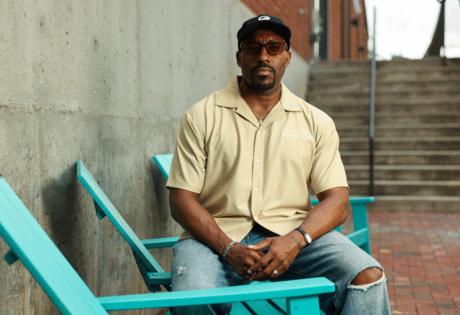
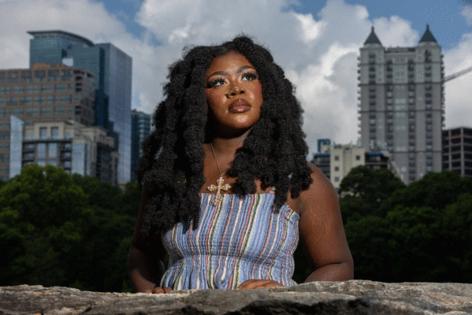
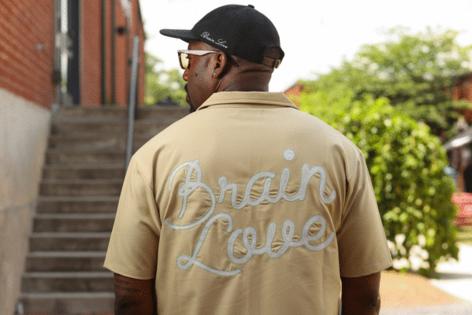
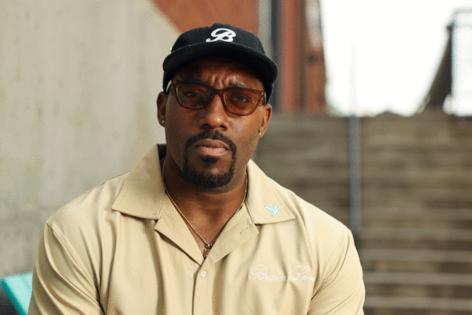
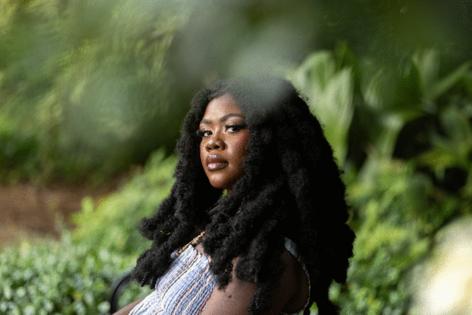




























Comments